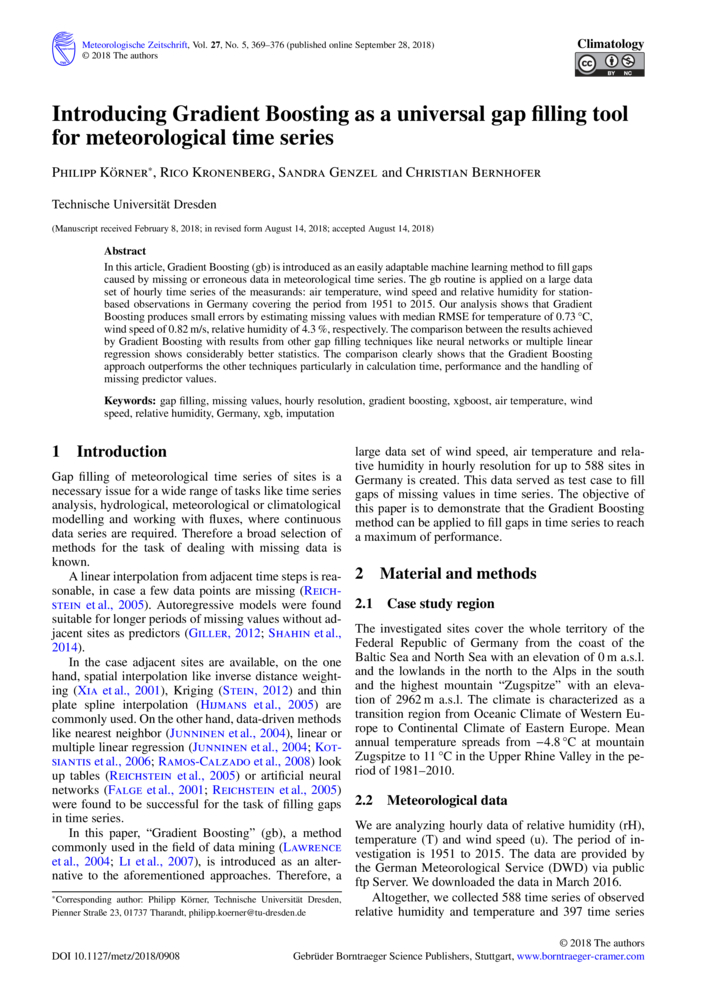Original paper
Introducing Gradient Boosting as a universal gap filling tool for meteorological time series
Körner, Philipp; Kronenberg, Rico; Genzel, Sandra; Bernhofer, Christian

Meteorologische Zeitschrift Vol. 27 No. 5 (2018), p. 369 - 376
25 references
published: Dec 7, 2018
published online: Sep 28, 2018
manuscript accepted: Aug 14, 2018
manuscript revision received: Aug 14, 2018
manuscript revision requested: Jun 7, 2018
manuscript received: Feb 8, 2018
Open Access (paper may be downloaded free of charge)
Abstract
In this article, Gradient Boosting (gb) is introduced as an easily adaptable machine learning method to fill gaps caused by missing or erroneous data in meteorological time series. The gb routine is applied on a large data set of hourly time series of the measurands: air temperature, wind speed and relative humidity for station-based observations in Germany covering the period from 1951 to 2015. Our analysis shows that Gradient Boosting produces small errors by estimating missing values with median RMSE for temperature of 0.73 °C, wind speed of 0.82 m/s, relative humidity of 4.3 %, respectively. The comparison between the results achieved by Gradient Boosting with results from other gap filling techniques like neural networks or multiple linear regression shows considerably better statistics. The comparison clearly shows that the Gradient Boosting approach outperforms the other techniques particularly in calculation time, performance and the handling of missing predictor values.
Keywords
gap filling • missing values • hourly resolution • gradient boosting • xgboost • air temperature • wind speed • relative humidity • Germany • xgb • imputation